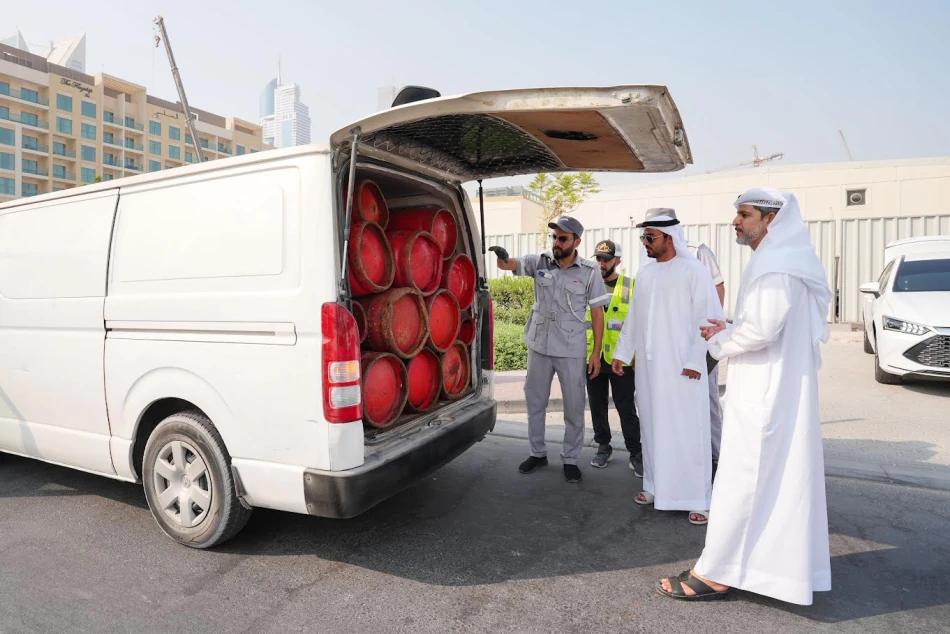
Dubai Roads Authority Cracks Down on Illegal Gas Cylinder Distribution Vehicles
Dubai Cracks Down on Gas Distribution Safety with Over 1,000 Violations in Sweeping Enforcement Campaign
Dubai's Roads and Transport Authority has intensified its regulatory oversight of household gas distribution, conducting more than 4,300 field inspections that resulted in 1,098 violations and the seizure of 170 vehicles between 2023 and mid-2025. The crackdown reveals significant safety gaps in a sector that directly impacts public health and environmental security across the emirate.
Massive Enforcement Operation Targets Critical Infrastructure
The comprehensive inspection campaign involved 15 government entities working alongside the Committee for Regulating Petroleum Materials Trading, demonstrating Dubai's multi-agency approach to infrastructure safety. The scale of violations discovered—roughly one violation for every four inspections—suggests widespread non-compliance in an industry handling hazardous materials daily.
Said Al Ramsi, Director of Licensing Activities Control at RTA's Licensing Agency, emphasized that household gas distribution represents a vital activity with direct environmental and public safety implications, necessitating stringent oversight to ensure vehicle compliance and detect counterfeit or unverified gas cylinders.
Counterfeit Gas Cylinders Pose Major Safety Risk
Among the most concerning violations were the discovery of counterfeit gas cylinders and containers of unknown origin—a finding that highlights potential safety hazards for Dubai residents. These substandard products could lead to gas leaks, explosions, or toxic exposure, making their detection a critical public safety priority.
The enforcement teams also identified numerous operators conducting transport and rental activities without proper permits, indicating a broader pattern of regulatory circumvention in the sector.
Dubai's Broader Urban Safety Strategy
This crackdown aligns with Dubai's strategic goals of enhancing safety and environmental sustainability while improving operational efficiency in the transport sector. The emirate's approach reflects a growing trend among Gulf states to strengthen regulatory frameworks around hazardous materials handling, particularly as urban populations expand rapidly.
Regional Context and Best Practices
Dubai's intensive inspection regime mirrors similar safety initiatives across the UAE and other Gulf Cooperation Council countries, where rapid urban development has heightened focus on infrastructure safety standards. The multi-agency coordination model employed here could serve as a template for other emirates seeking to strengthen their regulatory oversight.
Industry Impact and Compliance Expectations
The RTA's warning that enforcement campaigns will continue "with full determination" signals that regulatory pressure on gas distribution companies will intensify rather than diminish. This creates both challenges and opportunities for legitimate operators who can differentiate themselves through superior safety compliance.
For the broader logistics and transport sector in Dubai, these enforcement actions demonstrate the government's commitment to maintaining high safety standards even in traditionally less-regulated areas of commercial activity. Companies operating in adjacent sectors should expect similar scrutiny as Dubai continues building its reputation as a safe, well-regulated business hub.
The seizure of 170 vehicles represents a significant financial impact on non-compliant operators, while the ongoing nature of the campaign suggests that regulatory enforcement will remain a permanent feature of Dubai's approach to public safety in critical infrastructure sectors.
Most Viewed News

 Sara Khaled
Sara Khaled






